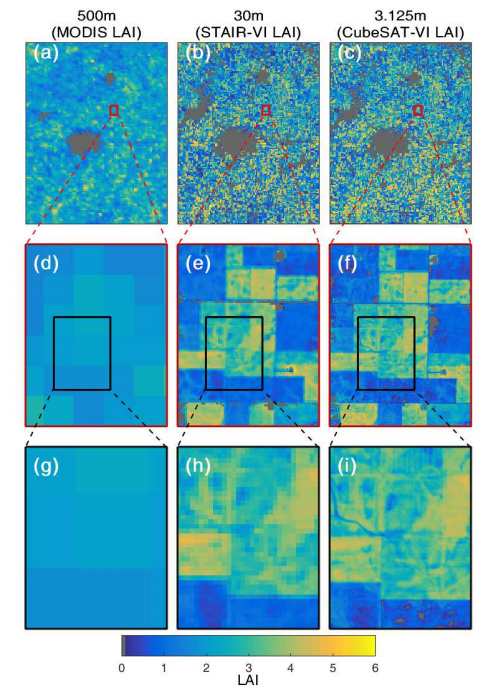NASA Harvest Partner Selected as Finalist for Blavatnik Young Scientist Award
NASA Harvest Partner Dr. Kaiyu Guan has been named one of 31 Finalists for the 2021 Blavatnik National Award for his work utilizing earth observation (EO) data, process models and machine learning to improve agricultural carbon, water and nutrient management. Dr. Guan’s creation of a 20-year dataset enabling daily snapshots of global farmland has allowed for improved historical modeling as well as current monitoring of agricultural environmental impacts and carbon emissions.
The Blavatnik Awards for Young Scientists is an international science recognition program funded by the Blavatnik Foundation. The National Awards Program selects winners from the United States within three categories- Life Sciences; Physical Sciences and Engineering; and Chemistry. Nominees must be based at US top 100 research institutions. The 2021 competition has 31 Finalists selected among the three program categories with one winning Laureate per category receiving $250,000 in unrestricted research funds. Dr. Guan’s category, Life Science, has 10 Finalists.
Dr. Guan is the Blue Waters Associate Professor at University of Illinois at Urbana Champaign. His recent work at NASA Harvest includes EO data fusion research and the creation of leaf area index databases.
Dr. Guan also leads a project for Harvest to develop actionable data products for farmers throughout the US Midwest that will allow them to better manage nutrients at the field scale. Dr. Guan and his team are essential to NASA Harvest’s efforts to strengthen relations with U.S. farmers. His domain expertise and interpersonal efforts are allowing for exceptional growth Midwestern farmland management.
The three Blavatnik National Laureates for each category will be announced on July 20th.
A figure from a recent Dr. Guan publication showing his efforts in producing finer spatial resolution agricultural observations.
This particular variable is leaf area index (LAI), a signifier of crop condition and productivity.

